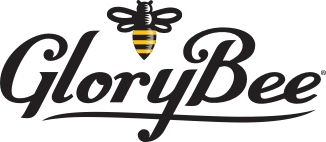Wildflower Bee Pollen Powder
THIS ITEM HAS BEEN DISCONTINUED
Please note that once out of stock this item will no longer be available.
Description
Description
 Wildflower bee pollen is collected on the legs of honey bees as they pollinate various wildflowers in wide open grasslands. We then take these pollen grains and grind them into a fine powder to make it easier to integrate into foods and beverages.The composition of nutrients found in bee pollen depends on the plants that the bees gathered the pollen from. Since we can't control where they will gather, the exact composition can vary from hour to hour, day to day and week to week and no two samples are exactly the same. The average nutrient composition of our wildflower bee pollen is 20% to 30% protein (amino acids) and 40% to 50% carbohydrates. Bee pollen has more protein per ounce than any other natural food. Bee pollen powder can be added to smoothies, mixed into granola, sprinkled on food, or encapsulated. This pail contains 5 pounds of bee pollen powder.
Wildflower bee pollen is collected on the legs of honey bees as they pollinate various wildflowers in wide open grasslands. We then take these pollen grains and grind them into a fine powder to make it easier to integrate into foods and beverages.The composition of nutrients found in bee pollen depends on the plants that the bees gathered the pollen from. Since we can't control where they will gather, the exact composition can vary from hour to hour, day to day and week to week and no two samples are exactly the same. The average nutrient composition of our wildflower bee pollen is 20% to 30% protein (amino acids) and 40% to 50% carbohydrates. Bee pollen has more protein per ounce than any other natural food. Bee pollen powder can be added to smoothies, mixed into granola, sprinkled on food, or encapsulated. This pail contains 5 pounds of bee pollen powder.
Bee Pollen Collection
As bees return to the hive, beekeepers use a pollen trap to gently brush the pollen off the bees’ legs causing the pollen to fall into a collection bin. From here the beekeeper cleans and dries the pollen at low temperatures preserving its potency and natural properties.
The beekeepers GloryBee works with only harvest pollen at specific times of the year to ensure that the bees have plenty of time to store their own pollen reserves ensuring hives can prosper.
Historical Usage
The first recorded use of bee pollen in China can be traced back to the Tang Dynasty (618 AD to 907 AD). Because of its difficulty to find and harvest during this time, consuming bee pollen was limited to Chinese nobility. China’s only female empress Wu Zetian was known to take bee pollen for its beneficial properties. This tradition lives on today and many Chinese have integrated bee pollen into their daily routines. Today china is the largest producer of bee pollen in the world.

The Greeks, Egyptians, and many other ancient cultures all knew the power of bee pollen. Hieroglyphs in Luxor Egypt describe the taste of honey and importance of pollen and Cleopatra herself was reported to use honey and bee pollen as part of her beauty regimen. Greeks would use bee bread to keep their armies well fed on long journeys thanks to the high amount of protein in bee pollen.
Note: This product does not contain any of the 8 major allergens. In rare cases bee products may cause allergic reactions in some people. This product is manufactured in accordance with all Federal, State and regulatory guidelines and is in full compliance with Dietary Supplement regulations.

